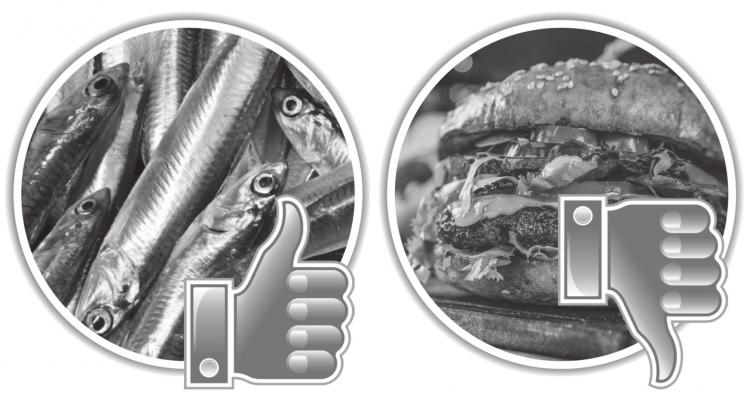How can I improve my cholesterol?
Most heart and blood vessel disease is caused by a buildup of cholesterol, plaque and other fatty deposits in artery walls. The arteries that feed the heart can become so clogged the blood flow is reduced, causing chest pain. If a blood clot forms and blocks the artery, a heart attack can occur. If a blood clot blocks an artery leading to or in the brain, a stroke results.
You can make lifestyle changes to improve your cholesterol. You can eat heart-healthy foods, reach and maintain a healthy weight, be physically active and not smoke. Some people also need to take medicine.
Your doctor can help you create a plan to improve your cholesterol. It’s important to follow your plan and discuss any concerns you have with your doctor.
What should I eat?
Focus on foods low in saturated and trans fats such as:
• A variety of fruits and vegetables.
• A variety of whole grain foods such as whole-grain bread, cereal, pasta and brown rice. At least half of the servings should be whole grains.
• Fat-free, 1% and low-fat milk products.
• Skinless poultry and lean meats. When you choose to eat red meat and pork, select options labeled “loin” and “round.” These cuts usually have the least amount of fat.
• Fatty fish such as salmon, trout, albacore tuna and sardines. Enjoy at least 8 ounces of non-fried fish each week.
• Unsalted nuts, seeds, and legumes (dried beans or peas).
• Nontropical vegetable oils like canola, corn, olive, or safflower oils.
What should I limit?
• Foods with a lot of sodium (salt)
• Sweets and sugar-sweetened beverages
• Red meats and fatty meats that aren’t trimmed
• Processed meats such as bologna, salami and sausage
• Full-fat dairy products such as whole milk, cream, ice cream, butter and cheese
• Baked goods made with saturated and trans fats such as donuts, cakes and cookies
• Foods that list the words “hydrogenated oils” in the ingredients panel
• Saturated oils like coconut oil, palm oil and palm kernel oil
• Solid fats like shortening, stick margarine and lard
• Fried foods
What are some cooking tips?
• Add a variety of fruits and vegetables to your meals.
• Use a rack to drain off fat when you broil, roast or bake poultry and meats.
• Look for leaner cuts if you choose to eat meat.
• Don’t baste with drippings; use wine, fruit juice or marinade.
• Broil or grill instead of pan-frying.
• Cut off all visible fat from meat before cooking.
• Remove the skin from poultry.
• Use a vegetable oil spray to brown or sauté foods.
• Serve smaller portions of highercalorie dishes.
• Use low-fat, low-sodium options instead of regular cheese.


